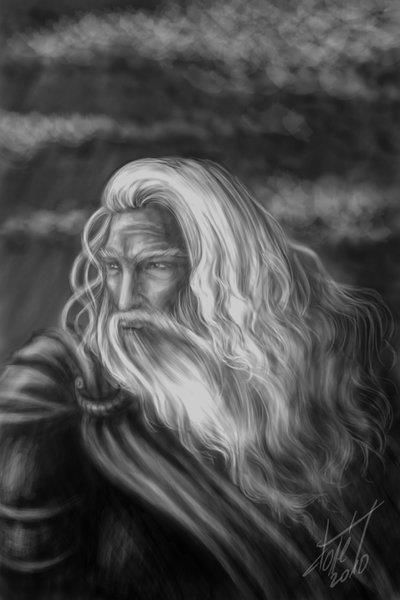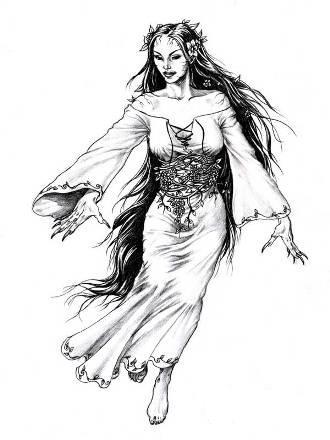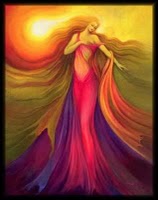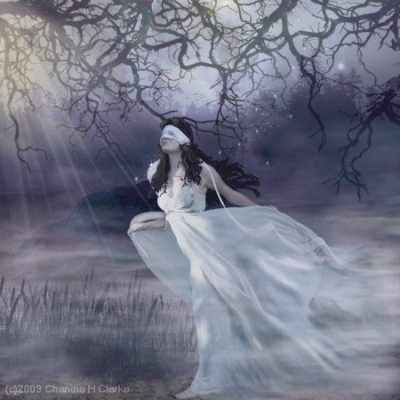by Monika
Artwork: Monika Dargeviciute
Copyright © 2019
Romanian: The Solomonar or Șolomonar (German phonetization: Scholomonar) is a wizard believed, in Romanian folklore to ride a dragon (zmeu or a balaur) and control the weather, causing rain, thunder, or hailstorm.
Lithuanian: Perkūnas (Lithuanian: Perkūnas, Latvian: Pērkons,Old Prussian: Perkūns, Perkunos, Yotvingian: Parkuns) was the common Baltic god of thunder, second most important deity in the Baltic pantheon after Dievas. In both Lithuanian and Latvian mythology, he is documented as the god of sky, thunder, lightning, storms, rain, fire, war, law, order, fertility, mountains, and oak trees.

 Lithuanian Perkūnas
Lithuanian Perkūnas
Romanian: In Romanian folklore, Muma Pădurii (Romanian pronunciation: [ˈmuma pəˈdurij]) is an ugly and mischievous or mad old woman living in the forest (in the heart of the virgin forests, in a hut/cabin or an old tree). She is the opposite of fairies such as a “Fairy” Zână. She is also the protector of the animals and plants, brewing potions and helping injured animals. She cures the forest if it’s dying, and she keeps the unwanted trespassers away driving them mad and scaring them to flee.
Lithuanian: Kupolė, the spirit of springtime vegetation and flowers. The Festival of Kupolė (Kupolinės) was associated with Feast of St. John the Baptist (Joninės). In this festival, women picked sacral herbs, danced and sang songs. Kupolinės is also known as Rasos. Compare this with Ziedu māte in Latvian mythology, Kupala in Polish mythology and Ivan Kupala in Russian mythology
Romanian Muma Pădurii
Romanian: Lucifer (UK: /ˈluːsɪfər/ LOO-si-fər; US: /-sə-/; ‘light-bringer’) is a Latin name for the planet Venus in its morning appearances, and is often used for mythological and religious figures associated with the planet.
Lithuanian: Aušrinė (not to be confused with Aušra – dawn) is a feminine deity of the Morning Star (Venus) in the Lithuanian mythology. She is the antipode to “Vakarinė”, the Evening Star.
 Romanian Lucifer
Romanian Lucifer
 Lithuanian Aušrine
Lithuanian Aušrine
Romanian: Vântoase are creatures present in Romanian folklore, as a sort of female spirits (Iele). Popular beliefs describe them as capable of causing dust storms and powerful winds. They live in forests, in the air, in deep lakes, and use a special wagon for traveling. The Vântoase are also believed to be capable of attacking children, and the only protection against them is the mysterious “grass of the winds”. In other legends, they are believed to be servants of God.
Lithuanian: god of the wind and master of Dausos (paradise).
 Romanian Vântoase
Romanian Vântoase
 Lithuanian Vėjopatis
Lithuanian Vėjopatis
Romanian: Ileana Cosânzeana is a figure in Romanian mythology. She is represented as a beautiful good-natured princess. In Romanian folklore, Ileana is the original concept of feminine beauty, the most beautiful amongst the fairies: her eyes look like the sun, her body is like the sea and her garments are made of flowers. Pearls and gold flow out of her mouth when she sings. She is also said to use her power of white magic to heal or revive.
Lithuanian: Lada is a goddess in Baltic and Slavic mythology associated with beauty and fertility. Her masculine counterpart is called Lado. Lada and Lado are sometimes seen as divine twins, and at other times as a mother goddess and her son. They are commonly mentioned together in songs related to planting, harvesting, and weddings. Lada and Lado together form one aspect of a multiple deity, whose other names and aspects relate to the Sun, water, and grain, respectively.
 Romanian Ileana Cosânzeana
Romanian Ileana Cosânzeana
 Lithuanian Lada
Lithuanian Lada
Published: Oct 25, 2019
Latest Revision: Oct 25, 2019
Ourboox Unique Identifier: OB-680114
Copyright © 2019








